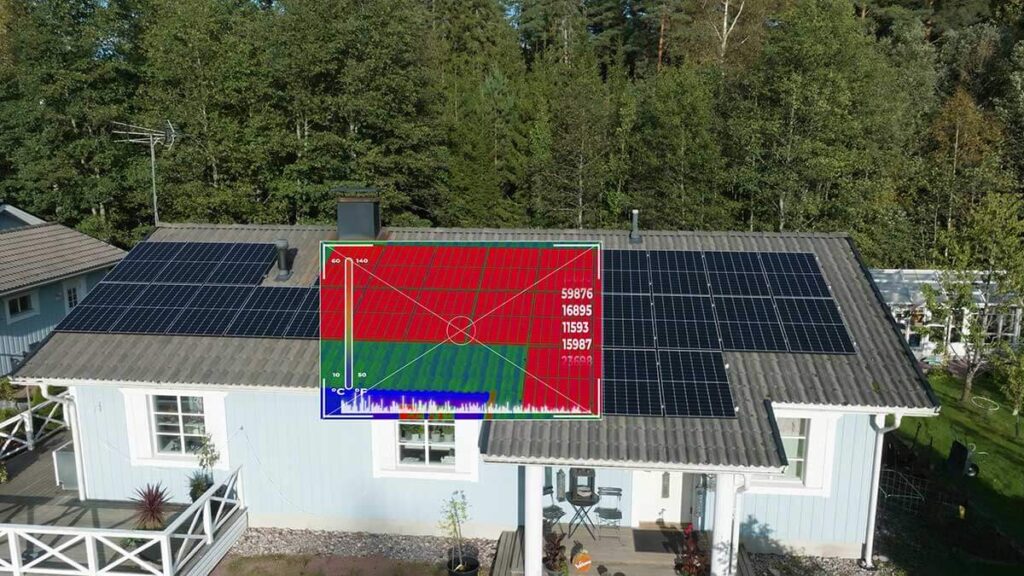As we enter 2025, the drone industry continues to grow with new technologies, regulations and market opportunities. In a recent episode of the Dawn of Autonomy podcast, Danielle Gagne, a key executive at Volatus Aerospace, shared her insights on the top developments expected in the drone industry this year and highlighted Volatus’ ambitious plans for growth and innovation.
The Top 3 Drone Industry “Opportunities” to Excel
According to Gagne, 2025 promises to be an exciting year for the drone industry. She foresees several key challenges on the horizon, but views them as “opportunities” for the industry.
Security
One of the most significant developments remains the ongoing tension between the United States and China, which could have a substantial impact on the industry. This geopolitical situation should renew focus on domestic manufacturing and data security across various countries.
“We’re going to continue to see, from a global perspective – in the U.S., U.K., Canada and others – a heightened global awareness related to where our data is going and who has access to it,” Gagne explained. She hopes this heightened awareness will usher in opportunities for countries to develop their own drone manufacturing capabilities and support industries within their borders, and that there will be government support with initiatives that will enable NDAA compliant companies to scale such as incentives and funding.
Supply Chain
Relatedly, supply chains remain a critical concern across the industry. Gagne stressed the importance of knowing from where components are sourced, particularly for essential components like batteries. She noted, “We need to establish methods to build and source locally so we have access to essential parts. This will alleviate reliance on others who might choose to cut off those supplies. At the same time, it will enable smaller local companies to grow and scale.”
Regulation
The regulatory landscape also continues to evolve as the complexity of drone operations increases. Gagne noted that as drones become larger and more capable, regulations and operational procedures will need to change accordingly.
This year, the entire industry eagerly anticipates new rules for Beyond Visual Line of Sight (BVLOS) operations in the U.S., Canada and abroad. While there have been some delays and uncertainties due to administrative changes at the highest levels in both North American governments, Gagne remains optimistic about the future of BVLOS operations. Civil aviation authorities, including the Federal Aviation Administration (FAA) have leveraged regulatory exemptions to foster real world operational evaluations, such as the one in north Texas. Gagne highlighted that Transport Canada has also issued Special Flight Operating Certificates (SFOCs), including several to Volatus, which have enabled them to conduct routine remote operations, including BVLOS flights to and from hospitals as well as operating within active airport environments.
As the drone industry continues to mature, Gagne identified a few other challenges that also present opportunities for growth and innovation. The ongoing consolidation in the market due to capital constraints seems to be pushing companies to form strategic partnerships and create more robust, integrated solutions.
In Gagne’s eyes, public perception still remains a critical issue for the industry. Recent incidents, such as the drone sightings in New Jersey that garnered significant media attention, highlight the need for better education and communication about the benefits and realities of drone technology. She thinks that the industry will need to work on actively reshaping the narrative going forward.
Against this backdrop of industry-wide developments, Volatus Aerospace is poised to make significant contributions with its top three developments for 2025.

Volatus Aerospace’s Top 3 Early 2025 Initiatives
As Gagne looks ahead to 2025, her company aims to make significant strides in the drone industry. To kick off the year, Volatus has announced three new initiatives which reflect its commitment to innovation, education and services expansion. By focusing on these areas, Volatus aims to strengthen its position in the market, provide valuable solutions to its clients and elevate the industry at large.
BINDT Thermographer Level-1 Certifications Brought to North America
This year, Volatus has introduced a level 1 thermographer certification course to North America, including certification in thermography through its Personnel Certification in Non-Destructive Testing (PCN) accreditation from the British Institute for Non-Destructive Testing (BINDT)–an internationally recognized accrediting body.
Leveraging the expertise of its UK-based team, which has been providing thermography certifications for over 20 years, this five-day intensive in-person course in Canada will provide drone pilots with a Level 1 certificate in thermography with an option for BINDT accreditation. The course is designed to teach pilots, not just how to collect high quality imagery, but also how to accurately interpret thermal images.
These internationally recognized qualifications will provide drone pilots with the necessary skills and bona fides needed to correctly perform complex thermographic inspections across various industries. Gagne explained the significance of these credentials. “They not only prove you have the requisite training,” she said, “but also that you have the requisite hands-on experience necessary to gather as well as thermographically tune and interpret the thermographic images properly.” The training is open to all drone pilots seeking to level up their skills.
The Drone Mentor Program Expands Globally
Volatus has also extended its successful U.K.-based program, The Drone Mentor, into North America and globally. Originally developed by its founder, Matt Williams, this subscription-based service aims to provide aspiring drone entrepreneurs with the guidance and support they need to build successful businesses.
Gagne described the program as a comprehensive resource for those looking to enter the drone industry. “It’s a service that provides a forum, comprehensive training, and live monthly Q&A calls that helps people bridge the gap from translating a remote pilot license into a viable business.” The program covers the soup-to-nuts of running a drone business, from marketing to operational best practices.
The Drone Mentor program provides online e-learning courses to increase accessibility, which allows participants to learn at their own pace. Volatus plans to continually add more content and value to the course throughout 2025. Gagne hinted at the potential for an intermediate-level course in the future to help drone entrepreneurs overcome specific growth challenges.
Operations Center and Surveillance As a Service
Following its merger with DDC, Volatus has significantly enhanced its operational capabilities. The company’s state-of-the-art Operations Control Center now stands as the keystone of the company’s service offerings by enabling remote piloting of drones across the globe.
Gagne proudly described the importance of this facility. “There are already 20 stations,” she explained. “As regulations move forward, we’ll be able to monitor up to 100 flights in this facility all over the world.” The center has already demonstrated its capacity for large-scale drone operations management. So far, it has overseen more than 10,000 successful remote flights.
The Operations Control Center is a key component of Volatus’ new Surveillance as a Service offering. This service addresses growing security concerns across industries. It integrates various partnerships and technologies to provide comprehensive situational awareness for clients by combining ground control, helicopter, fixed-wing aircraft and drone data to create a complete picture of operations.
As Volatus Aerospace continues to grow its offerings and capabilities this year, the company is not content to rest on its laurels. The company is already looking beyond these new initiatives to to further push the boundaries of what’s possible in unmanned aviation: large cargo drones and advanced airspace awareness capabilities.
Future Aspirations: A Year of Expansion and Cutting-Edge Tech
As we look ahead to the rest of 2025, not only should the drone industry significantly advance, so too should Volatus Aerospace.
Looking beyond its top three developments, Volatus Aerospace has ambitious plans for the future, particularly in the realms of large cargo drones and advanced airspace awareness technologies.
In the cargo drone space, Volatus is eyeing the potential of larger, more capable aircraft. The push towards larger drones is driven by the need for greater payload capacity and endurance, which Gagne sees as crucial for achieving true scalability in the industry. Whether for logistics or carrying heavier sensor payloads, these capabilities will open up new possibilities for drone applications.
While the company’s investment in Natilus, a heavy cargo drone, may not see deployment for a year or two, Gagne hinted at nearer-term developments in this space. “We’re already thinking about larger, bigger drones for 2025,” she said.
On the airspace awareness front, Volatus already provides situational awareness and non-lethal deterrent capabilities. Volatus has taken a measured approach to airspace awareness and protection. The company’s partnership with Kongsberg Geospatial for their Surveillance as a Service offering demonstrates its commitment to comprehensive airspace management and security solutions.
All in all, the future of the skies looks bright, even if a bit turbulent. To Gagne, “Whenever there’s an obstacle, there’s always another opportunity that comes with it.” She said, “I’m really excited to see how we deal with these challenges as it will help to define the next phase of the drone industry’s journey.”
And Volatus seems well-positioned to enter this next phase, by leveraging partnerships and developing comprehensive security solutions, taking a comprehensive ecosystem approach and focusing on education and innovation.

